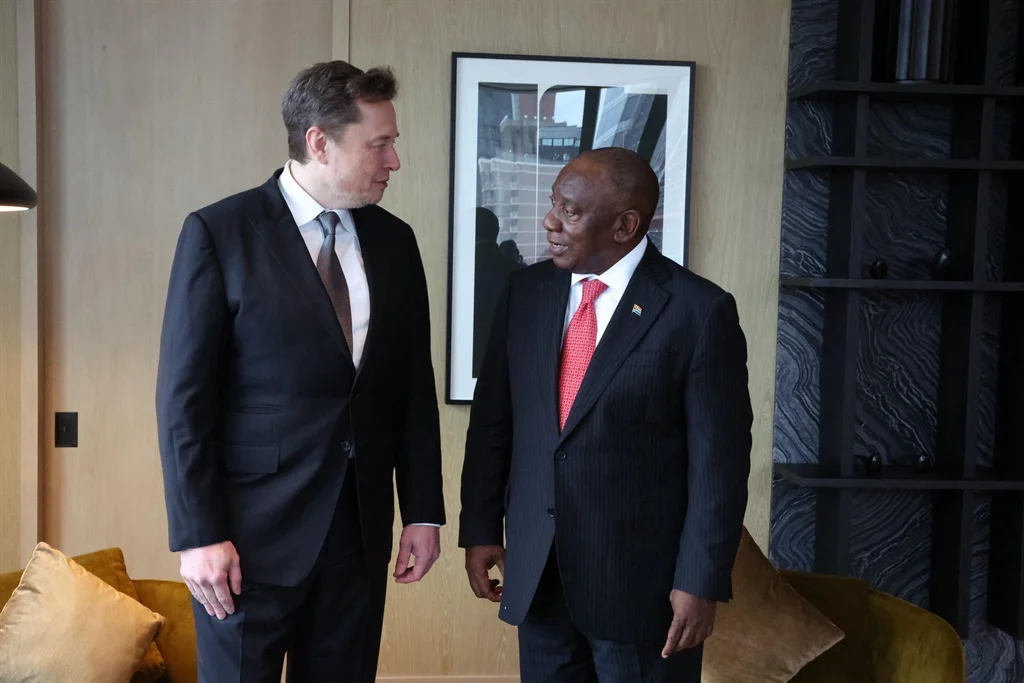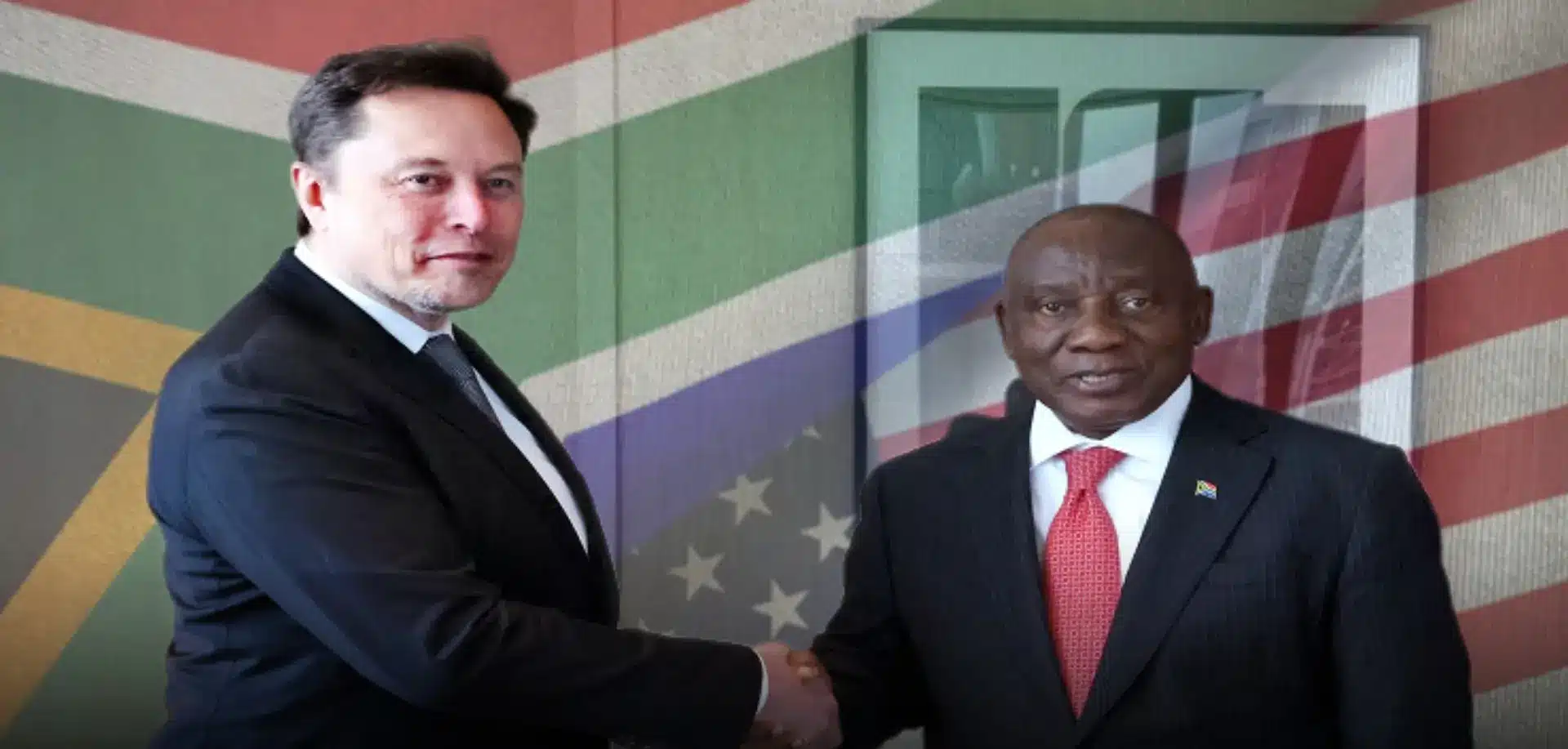South Africa is seeking investment from Elon Musk, the world’s richest man, despite his recent accusations that the country’s government enforces racist laws, the presidency announced on Wednesday.
President Cyril Ramaphosa has engaged with Musk “with the intention to see him invest more in South Africa,” presidential spokesperson Vincent Magwenya told reporters.
Ramaphosa is particularly interested in Musk’s satellite internet service, Starlink, which provides web access to remote areas. However, licensing the service in South Africa has been delayed due to the country’s Black Economic Empowerment (BEE) regulations, which aim to address racial disparities stemming from apartheid. While Starlink is already available in 17 African countries, it has yet to launch in South Africa.
Musk and Ramaphosa previously met in September on the sidelines of the UN General Assembly and spoke again by telephone on Tuesday, according to the presidency.
Their latest conversation followed Musk’s remarks on his social media platform X, where he accused Ramaphosa’s government of enforcing “openly racist ownership laws.”

Meanwhile, U.S. President Donald Trump, who counts Musk among his advisers, has threatened to cut funding to South Africa over claims that the country is “confiscating” land under an expropriation act.
The newly enacted law allows the government, under specific conditions, to offer “nil compensation” for property it deems necessary to seize in the public interest. However, this can only occur after efforts to negotiate compensation with the property owner.
During his conversation with Musk, Ramaphosa addressed what he called “disinformation that we saw in the announcement by President Trump” and also pushed back against Musk’s accusation of racism, Magwenya said.
“South Africa does not have racist ownership laws,” he added.
Musk, who left South Africa in the late 1980s at age 17, may have been referring to the country’s Black Economic Empowerment policy. This framework requires major companies, including foreign investors, to allocate 30% equity to historically disadvantaged groups as part of efforts to correct racial imbalances established under white-minority rule.
South Africa’s telecom regulator is set to hold a public hearing this month to discuss regulations for potential operators, a move expected to influence Starlink’s prospects in the country.


 Trending
Trending 